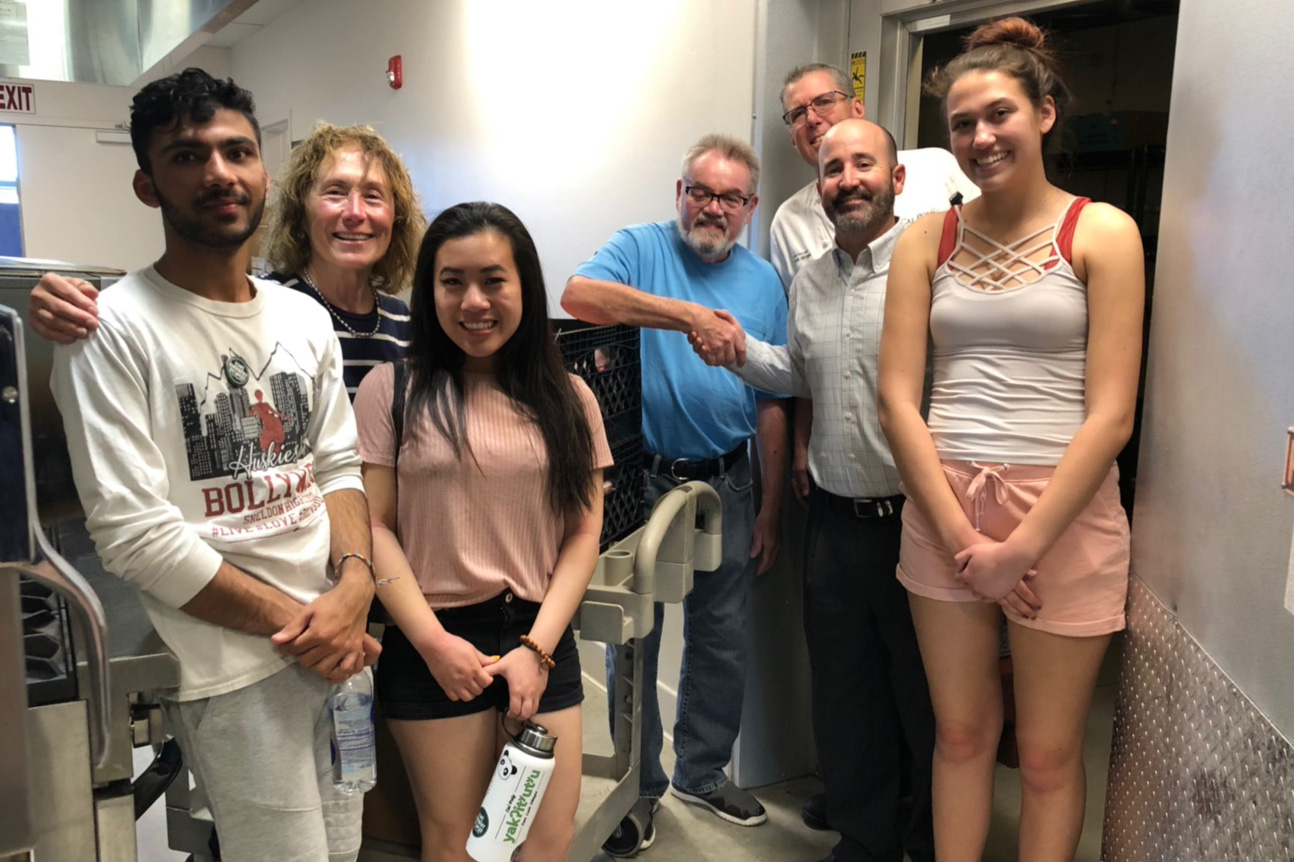Freshmen at Cal Poly are required to purchase a dining plan for the full academic year — but what happens when students do not need all of those meal credits?
For food science and nutrition freshman Vianna Yang, wasting meals was not an option while knowing there was a lack of food resources at the local homeless shelter on 40 Prado Street.
At the end of Winter 2019, the Cal Poly students donated 500 meals to the 40 Prado Homeless Services Center —a 365 days per year facility that helps individuals and families improve their health and stability and move them towards self-sufficiency — with help from Campus Dining and the Cal Poly Honors Program.
As part of the Cal Poly Honors Program, Yang and other Honors students form groups to work on an assigned community project. Yang’s group, which was made up of other freshmen — mechanical engineering student Paige Ross, business administration Jadin Stewart, journalism Roselyn Romero and ethnic studies Manmit S. Chahal — was assigned 40 Prado Homeless Services Center.
“We came up with [meal credit collection] because of the lack of resources for food at the shelter and we wanted to raise homelessness awareness on campus for students at Cal Poly,” Yang said. “All of us are first-years, so we all use a meal plan and we noticed we each have a lot of extra meal credits at the end of the quarter … We just kind of put two and two together and thought, ‘Why don’t we put together a meal credit collection’?”
The meal credit collection will host another donation drive at the end of Spring 2019 for students to contribute their extra meal credits, Yang said. The date has not yet been determined.
Donating meals to the homeless shelter
According to a news release from Cal Poly Corporation, the Cal Poly Honors Program and Campus Dining hosted two separate tabling events in the University Union where students were able to donate meal credits from their dining plans through the meal credit donation program.
At the request of the shelter, each donation was turned into a meal consisting of a sandwich or wrap, whole fruit and milk that was provided by Campus Dining, according to the release.
“We are heavily invested in the campus and the community, and this enabled our students to demonstrate the passion that they have for helping others,” Campus Dining Assistant Director Russell Monteath said according to the release.
Donations at the shelter
40 Prado Homeless Services Center office coordinator Michelle Broom said in a phone interview that a majority of their donations at the facility come in the form of sleeping bags, blankets and toiletries. The center is open 24/7, so people usually pop in and out with their donations, Broom said.
“We have two sheds full of clothes right now, so we are not accepting any clothing donations. We encourage people to take their clothing to local thrift stores,” Broom said. “Most [food donations] are coordinated through [the facility’s] chef, but he is very specific who he takes donations from.”
Broom said the chef at 40 Prado deals with anything food-related, but was unavailable to speak on behalf of the topic.
A surplus of meal credits
According to Cal Poly Campus Dining, all freshmen living on campus must have a dining plan for the full academic year. Unused dining dollars will roll over to the next quarter through the end of the academic year, but funds remaining at the end of the spring quarter are forfeited, and that money does not get refunded to students. Oftentimes, freshmen end the school year with a surplus of dining dollars.
Recreation, parks and tourism administration junior Kaitlin Beuschlein said she remembers always having an excess number of plus dollars left on her PolyCard her freshman year.
“I always had around $300 at the end of the quarter,” Beuschlein said.“One of my friends had $900 leftover. Her mom drove down to campus market one day just to spend all of the money for her.”
Campus Dining has changed the dining system since the 2017-18 plan from plus dollars to meal credits in 2018-19 and has again released new dining plans for incoming freshmen and continuing and transfer students for the 2019-20 academic year as a result of student feedback regarding the current meal credit system, according to Mustang News.

